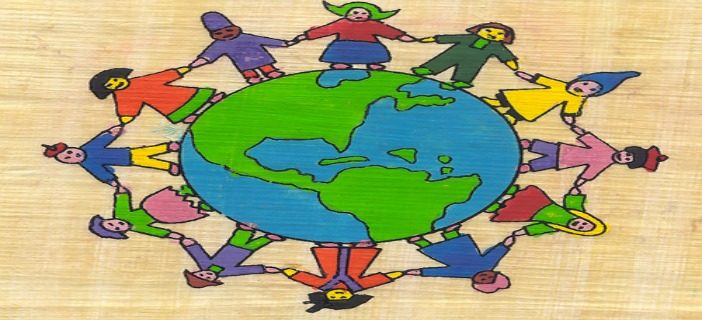The first time I lived abroad was as a student learning Mandarin here in Beijing. It is not uncommon for Chinese-Filipino families to send their children to China or Taiwan to study Mandarin for a semester or two before finding a job, and I happened to be one of those kids.
My first foreign contact was a Korean girl who was my roommate and eventually also my best mate. I was raised in that typical Chinese community wherein girls are expected to “behave” by always coming home early, studying well, and follow all the given rules. In fact, one of the reasons my mother sent me to China was because she considered me a “rebel”, although I would later on learn that I was a rebel but only in our cultural context.
My Korean roommate was younger than me by a few years, so it shocked me that she could cook. Likewise, it shocked her to discover that I couldn’t even fry an egg. If you find me silly, then you’ll probably find it shocking that many of my peers in Manila at the time couldn’t do it either. Most of us grew up with helpers, after all.
As the weeks passed, the standards for a “good girl” that I had been raised to believe all my life were tested, and that was when I realized that I wasn’t wrong but neither was my mother. Our expectations and our views are shaped by several factors, like our environment, our culture and our own family’s personal values.
1. You learn that some values are not as bad as you thought they were.
I was hired as an English teacher in 2012 at a local teaching academy. I was assigned a desk next to M, an American co-worker who was surprisingly just as chatty as I was. Of course, not all Americans are chatty. But the ones I’ve met are much more outspoken and direct than my countrymen. And though I did my best to pretend otherwise at the time, her blunt honesty and straightforwardness shocked me once in a while. What a relief!
What a relief, because finally, I had found someone who was doing what I’ve been told is wrong. I finally found someone who was doing to me what I knew I had probably been doing to others, and I didn’t find it offensive at all. It was just facts being stated, no beating around any stupid bush. The way she spoke was honest but not to the point of insulting, and she made me feel like I finally wasn’t alone. Interestingly, though, as the months passed by I would notice her starting to choose her words more carefully around our Chinese co-workers. While I was learning to adapt to my Western friends, she was learning to be more conscientious with her choice of words.
When we learned that we had similar days off, we planned for an adventure. Our first of many would be a beach adventure to Beidaihe, a beach a few hours away from Beijing. There we discovered that it wasn’t as warm as we had hoped it would be (we were probably the only travelers there), that even local wines were faked, that said fake local wines should never be tasted (or even opened for that matter, blech!) and that silly things such as chasing sunrises could actually be fun as long as it’s coupled with awesome companionship. This whole adventure would have been filed under the Disaster category if I had been traveling with my family or even with my Korean husband’s side of the family, and yet those are just some of the reasons I found it so absolutely memorable.
2. You become a bit culture-conscious.
My husband would first discover “Filipino time” when I tried introducing my friends to him for the first time. By the time everyone had arrived more than an hour had passed, and some had said they could make it in time. My husband would only discover how deeply ingrained this “Filipino Time” attitude was in my being after we got married. What would have been more acceptable in the Philippines was considered an insult in my husband’s culture.
Likewise, I had to ask my husband to slurp his noodles a bit more quietly whenever we were in the Philippines. He’s getting the hang of it, especially since he doesn’t like attracting stares from fellow customers.
Speaking of the Philippines, we like to say thank you over there. Thank you for this and thank you for that. So it’s very hard for me to control it sometimes when I’m with my Chinese best friend, who has reminded me probably a thousand times to stop thanking her for Every. Single. Thing. She says that you don’t need to say thank you so much among friends. I get it, I get it. But sometimes it’s so hard to change!
3. You learn to be flexible.
But change you must. Otherwise you’re bound to step on a few toes. You’re bound to offend someone. And you learn that some acts are just not acceptable in some cultures. Like did you know that you can’t write Korean names in red? That’s practically sentencing them to die. Some things you just don’t do.
4. There are sides of yourself that you can let out because of your foreign friends.
Some of my longest and favorite lunches were organized by our Latin American friends. That was when I first discovered that some eat outs don’t have to end just because lunch time is over. My husband and I had this group—we were three couples in all—with whom we would have marathon lunches that would reach all the way to dinner and even beyond if no one said anything—or rather, we had too much to say. My Latin American friends taught me that having lunch is not just about the food on the table, but the connection that happens because of the food.
5. You learn new tricks.
The other couple in that group are our Korean friends, and interestingly we both had our first child just a few months apart. She introduced me to books and places and Korean-related information that helped me with parenting in Korea. Isn’t it fun to have a friend to transition into motherhood with? Not only did I have a friend who would always understand, but because Koreans are naturally more independent since they don’t have helpers, I unintentionally raised my children to be a mix of our cultures.
Not just that, I learned about different foods—like did you know that different places have different versions of “spicy” foods, different fashion styles, different parenting styles, and more.
And oh what a blessing it is to experience that. If there’s anything I’ve learned from this multicultural society we currently live in, it’s that we just never stop growing. There’s so much to learn, not just from others but about ourselves as well beyond the fences culture has sometimes limited us to. Like how my parents’ parenting was shaped by their environment and their own cultures, I hope to raise my children to be the best versions of themselves in this new cultural arena I’m lucky to be in, which is our multicultural society in Beijing. Our children can discover the best versions of themselves but also adapt themselves by taking into consideration the culture of the people they meet and the environment they are in.
Multiculturalism is here to stay, and I want to be there to guide my children to embrace it.
Photo courtesy of Jimee, Jackie, Tom and Asha (Flickr).





3 Comments
Pingback: How Being in a Multicultural Environment Changed Me - Bringing Up the Parks
This is a great post. The points are well taken. I love your open minded approach concerning all cultures.
so true.